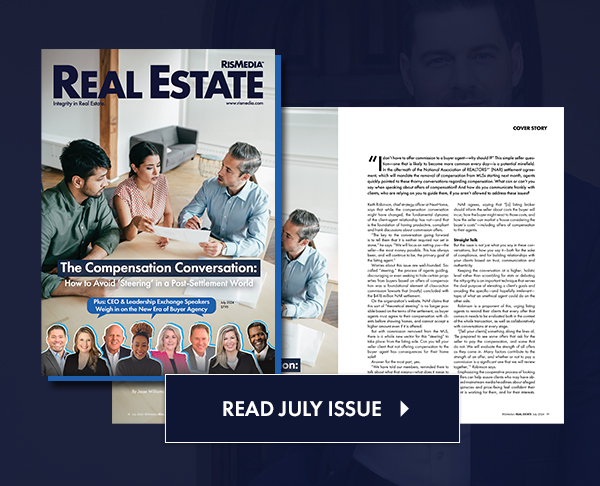The National Association of REALTORS® and Realtor.com today honored three winners of the Fair Housing Champion Award during NAR’s Fair Housing Month event, “Many Rivers to Cross: America’s Ongoing Fair Housing Journey.” Honorees received recognition for their efforts to advance fair housing and expand homeownership in their communities.
With the Fair Housing Champion Award, REALTORS® are recognized for going above and beyond to support buyers and communities that have faced housing discrimination, advocating for accessible and affordable housing opportunities, and promoting consumer and Realtor® fair housing education. Sponsored by Realtor.com®, the award provides a $5,000 prize that winners can dedicate to a housing-related nonprofit organization of their choice.
“NAR’s mission to promote the growth of prosperous, diverse, and inclusive communities across the United States is more resilient than ever,” stated NAR President Kevin Sears. “Affordability and fair housing remain the most significant challenges confronting the real estate industry today, and I am immensely proud of the dedication displayed by our award recipients in expanding access to homeownership. Their leadership has paved the way for positive change, inspiring others to join in our collective efforts.”
This year’s winners include:
- Eve B. Lee, a Lake County, Illinois, community leader, has spent more than 45 years expanding housing opportunities.
- Shadrick Bogany, a prominent figure in Houston real estate, advocates for homeownership as a means of empowerment, particularly within marginalized communities.
- Paul Yorkis, as president of the Massachusetts Association of REALTORS®, successfully advocated for the state government to translate standard real estate forms into languages other than English.
“Having someone to help consumers overcome the barriers of buying a home and advocate for them in the transaction is crucial to opening more doors to the many benefits of homeownership,” said Realtor.com Chief Marketing Officer Mickey Neuberger. “We are proud to support the professionalism of Realtors® and especially these Fair Housing Champions, who are making a real difference by helping expand housing opportunities in their communities.”
In addition, Alexia Smokler—director of NAR’s fair housing policy & programs—welcomed Patrice Ficklin—the founding director of the CFPB’s office of fair lending & equal opportunity—to the fair housing event to discuss the significance of the Equal Credit Opportunity Act (ECOA) on its 50th anniversary. The discussion highlighted ECOA’s role in advancing women’s access to credit and mortgage lending by prohibiting discrimination based on sex and marital status. Before ECOA, women faced significant obstacles in obtaining credit due to discriminatory practices such as requiring male co-signers and devaluing women’s income.
The conversation also delved into the amendments made to ECOA in 1976, NAR stated, expanding protected classes and introducing special-purpose credit programs while addressing contemporary challenges such as digital discrimination and unjust lending restrictions based on criminal history or public assistance income.
Ficklin concluded, “In the past 50 years, we’ve come a long way from women being interrogated by lenders on their family planning and marriage plans to qualify for credit, but the work to ensure fairness and equity is far from over. We cannot solve these problems alone or in a vacuum, but I am hopeful and encouraged by our collective efforts to advance the important yet unfinished work of advancing economic justice.”
NAR’s Vice President of Policy Advocacy, Bryan Greene, welcomed Thomas Sugrue, a preeminent civil rights historian, to discuss the activism preceding the 1964 Civil Rights Act, whose 60th anniversary NAR commemorated at the event. Their discussion emphasized the ongoing struggle against racial discrimination in various aspects of society, such as in the workplace, education, and housing. While the 1964 Civil Rights Act addressed some forms of discrimination, including in public spaces and employment, it notably did not confront issues in the private housing market. That didn’t happen until 1968, with the passage of the Fair Housing Act, seven days after the assassination of Dr. Martin Luther King, Jr.
Sugrue highlighted that individuals’ housing choices today are still constrained by discrimination and other racial barriers beyond their control. “We often turn a blind eye to it or just assume that housing segregation is a result of individual choice,” he said. “It’s not.” The discussion underscored the need for strengthened enforcement of existing laws, greater awareness of ongoing discrimination, and interventions to address systemic barriers to fair housing access.
For more information, visit https://www.nar.realtor/.












